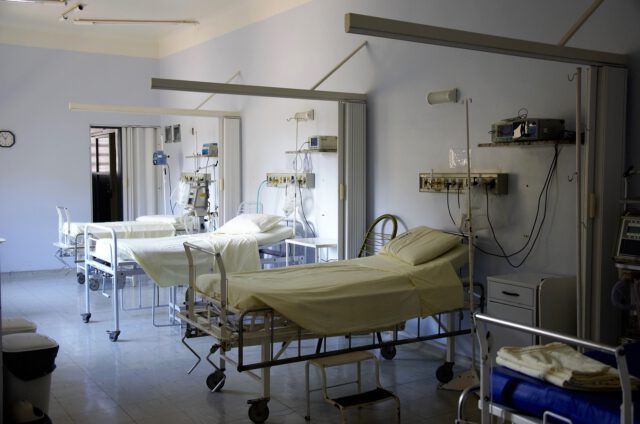There is little children and adolescentswho are seriously ill and require hospitalization due to Covid-19
There are few children and adolescents who become seriously ill and require hospitalization. It also does not appear that the late effects of covid-19 are common in children and adolescents.

About 140 children with COVID-19 have been hospitalized in Norway so far
Data from Norway show that 0,4% of people aged 0-17 years diagnosed with Covid-19 infection are admitted to hospital. The average hospitalization time (at bedtime) is 2 days, which indicates that most people recover quickly. About 140 children with COVID-19 have been hospitalized in Norway since the beginning of the pandemic. Children with underlying diseases at risk are slightly more likely to be admitted to hospital but do not have an increased risk of infection. It should be emphasized that even for those with a more severe picture of the disease, MIS-C inflammation may occur 2 to 6 weeks after infection.
They do not require hospitalization for Covid-19
Both Norwegian and international data show that children under 1 year of age are most often admitted to hospitals in the 0-17 age group. This is also known from other infections in children, as youngest children tolerate both fever and respiratory symptoms less well than older children. In addition, there is a lower threshold for admitting the youngest children.
After vaccination, pregnant women develop antibodies to the virus which are passed on to the fetus
The youngest children can be protected against Covid-19 if the mother was vaccinated during pregnancy, which is currently recommended Norwegian Institute of Health Public. After vaccination, pregnant women develop antibodies against the virus and are transferred to the fetus. Protecting your baby from disease in the first months of life. This is also known from other vaccines given to pregnant women; that vaccination during pregnancy protects both the mother and the newborn.
Child deaths from Covid-19 disease are very rare. In England, all child and adolescent deaths in the first year of the pandemic were analyzed and found that 25 deaths were caused by covid-19. In 76% of them, it was a serious underlying disease and a life-limiting disease. They estimate that there are 0 deaths per million children and adolescents aged 17-2. In Norway, there have been two deaths so far in the 0-19 age group.
They do not require hospitalization for Covid-19. Not many children and young people are expected to become seriously ill with COVID-19
Modeling the Norwegian Institute of Public Health to calculate the number of children and adolescents who may be admitted to hospital in the future is uncertain, but estimates are low. Therefore, it is expected that not many children and young people will become seriously ill with COVID-19, or that hospitalization of children will jeopardize their healthcare facilities.
Among those who have not been offered the vaccine, it is expected that there will be some infection throughout the fall and winter. The consequences of infection in this age group are low; most people have no symptoms of the disease. There is also no approved vaccine for people under 12 years of age. There are also none published results of studies on vaccinations of children under 12 years of age. This age group has a low disease burden and contributes relatively little to the spread of infection.
Infection control measures will continue to be applied in schools and kindergartens
It should be emphasized that infection control measures still exist in schools and kindergartens. Measures are still being taken to limit infections; first, people who have symptoms of respiratory infections should not go to school or work, but stay home and get tested. In addition, people diagnosed with Covid-19 are placed in solitary confinement and household members are quarantined.
We still want some restrictions on infection, but accept that some children will get COVID-19. For many, this is an unknown situation, as so far so few children and adolescents have been infected. We must constantly evaluate the proportionality of the measures. The alternative to the greatest possible normalization of everyday life now and in the future is to continue with activities that strongly affect the lives of children. Here, too, we are gaining more and more knowledge about the negative effects of harsh measures on children, says Greve-Isdahl.
However, it should be emphasized that covid-19 is not a serious infection for children. What do we know about the late effects of Covid-19?
`` I understand that parents may be worried when all the news has been circulating about covid-19 for the past year and a half. However, it should be emphasized that covid-19 is not a serious infection for children. Few of the children who require hospitalization are well treated and have a good prognosis. Even with the most serious disease in children: MIS-C inflammation, says Greve-Isdahl
The late sequelae of Covid-19 (which some call the long Covid) are not precisely defined. In adults, various symptoms such as loss of sense of smell, fatigue, shortness of breath, or cognitive problems have been reported.
"In children and adolescents, long-term symptoms seem to be less common after undergoing covid-19," says Greve-Isdahl.
- It should also be emphasized that we cannot directly convey to children the knowledge of adult infections; we know disease varies greatly in symptoms, severity, and risk of death. He says that children and adolescents have good biological conditions to deal with new viral infections.
Read our next article: The FHI Recommendations for Vaccinating Pregnant Women


